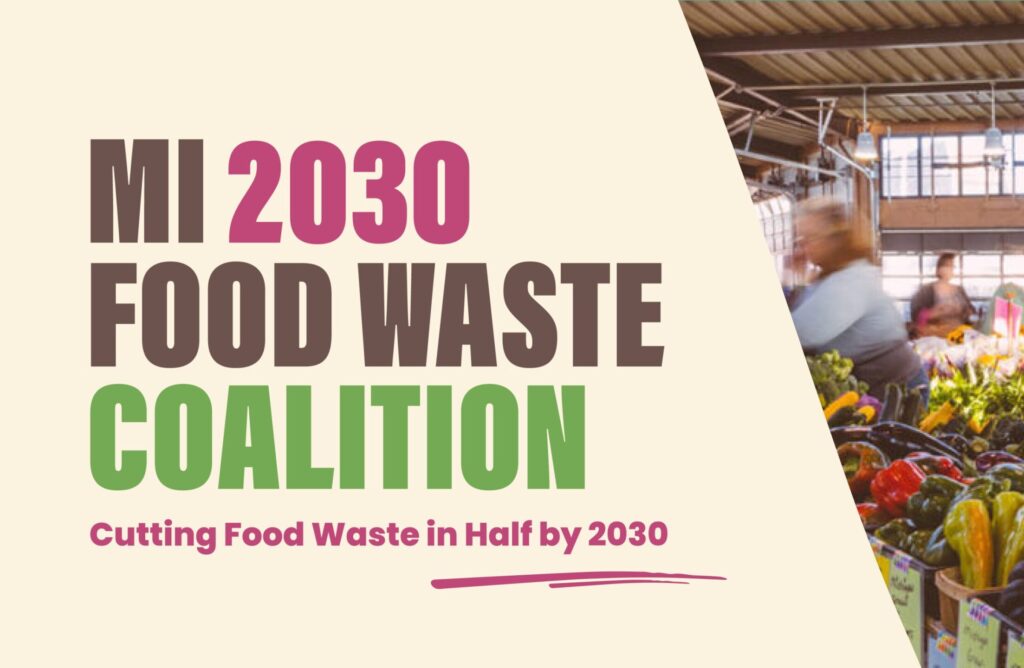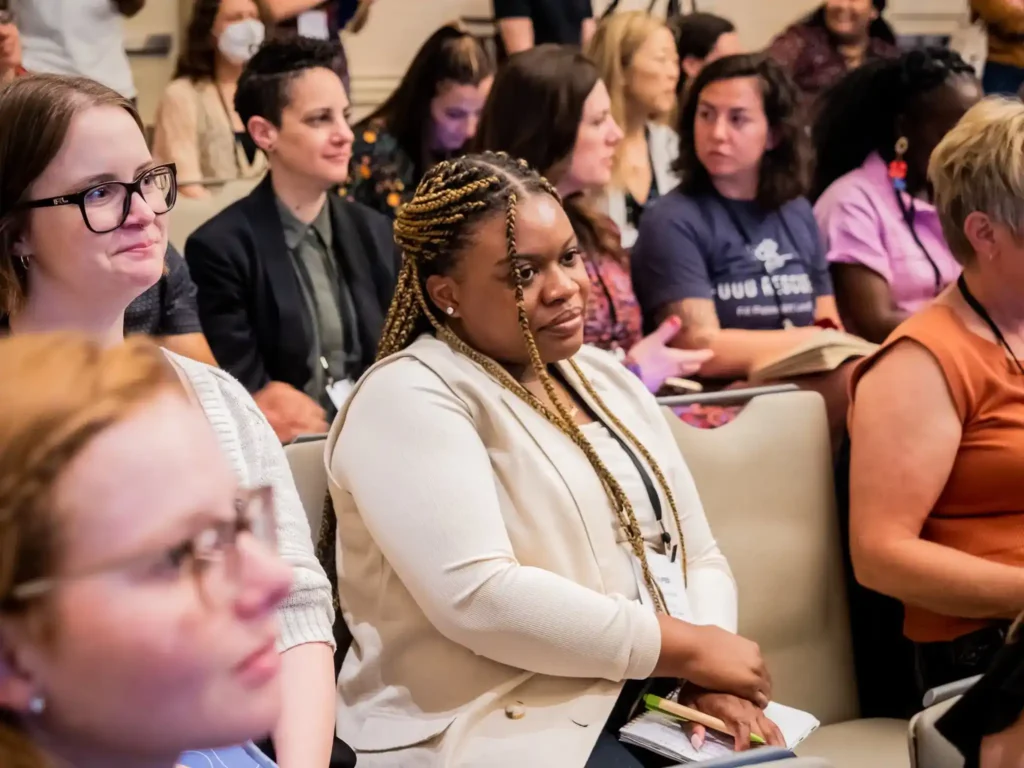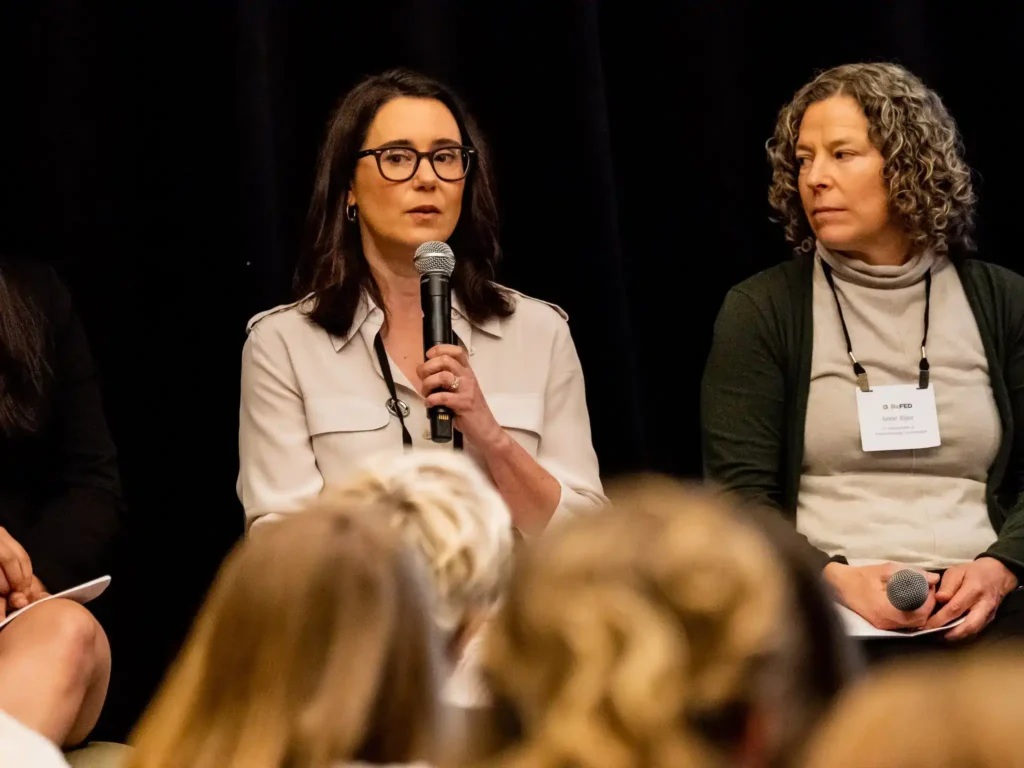In 2017, I came across a group called Feedback, an international organization that used large-scale public events to grow awareness about the problem of food waste. Their signature “Feeding the 5000” gatherings were held in major cities across the world and served thousands of free meals made entirely from food that would otherwise have been thrown away. Perfectly good vegetables, grains, and proteins, fallen out of the food system because of appearance, oversupply, or logistics, were transformed into delicious meals that highlighted both the absurdity of food waste and the possibilities of action. The biblical reference to feeding 5,000 people with only five loaves and two fish underscored a powerful idea: when we bring people together, even scarce resources can be multiplied to create abundance.
At that time, the U.S. food waste reduction movement was only just beginning to take shape. In metro Detroit, conversations about the issue were few and far between. Yet this model of celebration, visibility, and community engagement struck me as a great way to start the dialogue locally. I was fortunate that the Detroit Food Policy Council agreed, and that they and Chef Phil Jones, a DFPC founder, joined me as partners to bring this idea to life at Eastern Market.
From the start, the response was extraordinary. Volunteers stepped forward, partners offered in-kind support from event space to design work to culinary expertise, and a movement began. Our first event, renamed Make Food Not Waste – A Community Feast, drew 2,500 people. It proved that Detroit was not only ready to talk about food waste but eager to build a community around addressing it. The project revealed an untapped desire to confront the issue not just as a matter of addressing hunger, but as a shared environmental, economic, and social challenge.
Still, in those early years, food waste reduction was viewed narrowly. Practitioners in food rescue and composting had long been working in the field, but efforts tended to operate in isolation. To the broader public, food recovery was primarily associated with feeding hungry people, while the environmental consequences related to climate change, soil degradation, water and air pollution were rarely part of the discussion.
Fast forward eight years, and the landscape has changed dramatically. The State of Michigan has formally committed to cutting food waste in half by 2030, investing millions of dollars to strengthen prevention, rescue, and composting efforts. Businesses, nonprofits, municipalities, and institutions are stepping up, recognizing that diverting food from landfills not only helps fight climate change but also supports food security, improves public health, and strengthens local economies.
Given this momentum, it’s now the right time to launch the MI 2030 Food Waste Coalition. With more than 120 members and growing, the Coalition serves as Michigan’s first statewide network to unite practitioners and advocates across the full food waste spectrum that covers prevention, recovery, and organics recycling.
While a handful of states have networks focused on either food recovery or composting, Michigan is leading by creating a broad coalition of solution providers across rural, urban, and suburban communities.
The Coalition’s role is both practical and inspirational. It is a place for practitioners to learn from each another, align strategies, and realize impact. Current working groups are already advancing key initiatives. One is developing a statewide directory to connect existing efforts and guide newcomers. Another convenes food rescue organizations monthly to share challenges and solutions. A third focuses on legislative outreach, ensuring policymakers understand the key role food waste reduction plays in Michigan’s climate and public health goals. These are only the first steps and we expect additional projects will emerge as we continue to work closely together..Food waste touches every community and every sector. Solving it together is the only way we’ll get there. Whether you are already working in this space, interested in starting, or simply curious to learn more, we invite you to join us. Together, Michigan can become a leader in turning food waste reduction into a driver of environmental health, economic opportunity, and community well-being.
To get involved, contact us at info@makefoodnotwaste.org.






